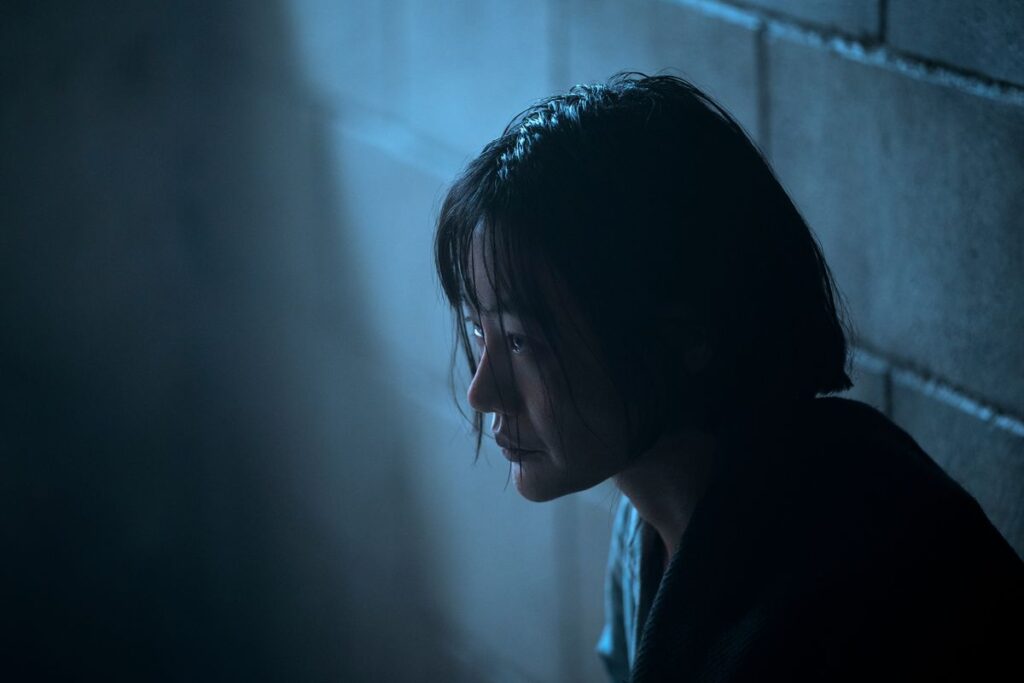The creators of Netflix’s 3 Body Problem know there’s a lot riding on their adaptation. There’s the fact that the books it’s adapted from are a beloved sci-fi series popular around the world. It’s science fiction that gets not only heady but wondrous, often thought to be unadaptable. There’s also the fact that two-thirds of the showrunning team is coming to this from Game of Thrones, another big-budget TV epic, and one that left something of a bad taste in people’s mouths.
Which is all to say: Many people will be primed for skepticism when it comes to watching 3 Body Problem on Netflix. But when watching, the showrunners (Alexander Woo, David Benioff, and D.B. Weiss) would like you to keep one thing in mind: Watch through episode 2 before you make up your mind. That’s the moment the whole season — and, indeed, the whole crux of the show — hinges around.
They thought it was a beat they could get to a little faster. The group talked about making it a two-hour pilot, before ultimately deciding that wasn’t the way to go. “As we broke down what had to actually happen, there’s too much event; there’s no way to do it in an hour,” Benioff told Polygon.
Without giving anything away, the end of the second episode is one of the key moments for the whole series, and one the book does slow play a bit. But it’s a moment that’s crucial to understanding how the Three-Body Problem series (and the 3 Body Problem series) thinks about the conflict at the center of it.
[Ed. note: The rest of this post contains spoilers for the first two episodes of 3 Body Problem, and does so by going into details of the book.]
Photo: Ed Miller/Netflix
If you’re familiar with the book (or just curious what the show is building toward in its first two episodes), the final scene of Ye during the Cultural Revolution won’t surprise you. It’s when she receives the alien correspondence and, alone, decides to invite them to Earth. She drafts a message and (as the book puts it) “without hesitation” presses the button to send.
“It’s that button,” D.B. Weiss says. “For us […] it leads to that moment. Everything builds to that moment. And that just felt like it just always seemed like the right thing to do.”
The goal was not to leave her feeling like some “mustache-twirling villain” who just wants to destroy the universe for fun. As The Three-Body Problem makes clear, this is a decision that alters intergalactic history.
It’s a choice that balances the vast possibilities of the infinite cosmos with the decidedly punishing limitations of Earth — a feeling author Cixin Liu wrote about in the postscript to the American edition of The Three-Body Problem. “As I gazed at that tiny, gliding star [Dongfanghong I, the first artificial satellite China ever launched], my heart was filled with indescribable curiosity and yearning. And etched in my memory just as deeply as these feelings was the sensation of hunger.”
While the three showrunners always knew they wanted to make the story more global as they adapted it, they also all agreed that for the changes to broaden the perspective of the story, Ye’s story needed to anchor the whole thing. Which, ultimately, meant leaving her early days relatively unchanged.
“It works so beautifully in the books and it’s all on the surface of making you understand a decision that would otherwise be inexplicable,” Woo says. “Someone who’s inviting an alien civilization to come and take over your planet seems like, Why would anyone do that? But hopefully — you feel this way in the books, and hopefully you feel this way in the series too — you get it. If I were in that position, I would have done the same.”
It’s a feeling that at least some of the crew identified with. As Benioff said at a press roundtable, “We did a poll on set while we were shooting the season of the crew. […] About half the crew said, Yes, I would summon the aliens to come fix this mess or just wipe it all out.”
3 Body Problem is now streaming in full on Netflix.

